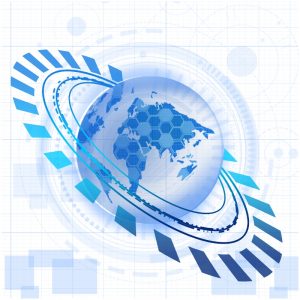Difference Between Forecasting and Prediction: As humans, we make a lot of mistakes in our affairs, mostly due to circumstances beyond our control. It is honestly frustrating if such an occurrence that would change the course of things is so small and seemingly inconsequential that we never would have guessed or prepared for its full impact. So, we get worried in the future and search for ways to avoid such occurrences. There are two main reasons why people are so concerned with the future.
The first is that any little knowledge of future happenings can help reduce the chances of our projects going wrong. This leaves us adequate time to prepare and avoid any loss. Also, such information can be highly profitable. Virtually anybody in any field wants to know what the next course is. It affords them a lot of control, and it is this desire that you can capitalize on to make a great profit. As a business manager, it would be priceless to gain enough information on a certain market to know what could happen in the future.
The concepts of forecasting and prediction are both concerned with the things that are yet to happen. They provide valid mediums for managers in different fields to try their hands at calling future incidents. This, in turn, helps them figure out whether they should change gears or remain on course. Notwithstanding this similarity, however, the terms are entirely different with distinct scopes. As you’d come to find in this article, their differences are multiple; from definitions to applicable fields, to modes of application.
In the end, the key difference is in the clear lines that separate them. One of them is entirely scientific, while the other is arbitrary and has the potential to be applied technically in all fields. To fully grasp these differences, let us explore the very meaning of the words themselves.
Recommended: Differences between the first and second generation computer
Meaning of Forecasting
Forecasting refers to the procedure for analyzing and illuminating a prospect of an experiment that is being undertaken. This method blends both the past and existing data into consideration. The reason why this is done is to foretell realities for the prospective incidents. To be clear, the net hose referred to, is entirely scientific and explores any prospective incident that would affect the institution.

This operation is carried out by directors within varying degrees, in specific models, analysts, economists, and can be assigned to do the task. There are two ways to carry out the process of forecasting and they include; quantitative and qualitative forecasting.
Quantitative forecasting is a descriptive procedure that tries to relate different samples using records and tendencies to prepare prognoses. Qualitative forecasting on the other hand is the procedure that is based on subjective judgment as opposed to any scientific process.
Also see: Differences between totalitarianism and fascism
Meaning of Prediction
To make a prediction is to make an effort at foretelling. This procedure is often employed when an endeavor has several risk factors. Some experts are employed by businesses, organizations, and investors; to make an expert guess at what could happen in the future, based on their judgment and intuition.

Sometimes, the results of certain predictions are completely different from the predictions themselves that become have come to associate prediction are high-risk engagements.
Recommended: Advantages and Disadvantages of being tall in nature
Differences Between Forecasting and Prediction
1. Accuracy: In forecasting, the varied experiments and lengthy process of inquiry make room for more chances of accuracy. This is because forecasts are mostly made upon past events or details from already-tried experiments, and because these things are related to the model in question, the chances of such a conclusion being accurate are very high. On the other hand, a prediction is usually made in the face of two options; one of which is selected by the predicting expert. It is either right or wrong.
Another thing you must know is that there may not be a completely right or wrong answer. Different parts of the prognosis can be correct and the conclusion is incorrect. When it comes to predictions, however, what is usually required is a single conclusion, and that is wrong, the entire process is wrong.
2. Bias: There is almost no chance for bias when it comes to forecasting because the procedure more or less involves strict or mathematical methods. Experiments rarely take into account; personal bias or judgment. A conclusion is usually made from the testing of variables and resultant effects.
Unlike the former, predictions can contain elements of bias because of their very nature. For example, when a prediction is made between two factions, you can’t completely rule out the potential of growing personal bias for one team or the other. When this happens, the possibility of making predictions that are not well thought out is very existent.
Also see: Advantages and Disadvantages of Being a Lawyer
3. Quantification: When a forecast is made with certain variables, the number of such variables can be measured. Take for instance; GDP for an economic forecast for a nation.
In the case of predictions, there is barely any data or variable, so the measurement of a quantity is either very vague or nonexistent.
4. Basis: To come up with a forecast, certain scientific methods are employed to create a model. Such methods involve the consideration of past events related to the model to come up with an accurate forecast. You can then deduce that in a situation where related trends change, the forecast would produce a different result.
On the other hand, prediction employs arbitrary and subjective tools such as tradition and intuition to predict coming incidents. These tools are more related to the manager than they are, to the model itself. There is very little consideration for changing trends or past events.
Recommended: Differences between Law and morality
5. Application-level: The process of making a prediction is very short, mostly because a prediction is made at a customer level, and only when there is a pressing need. The results are received almost instantaneously.
On the other hand, a forecast is not usually ensued upon the occurrence of a problem but involves the examination of available data, and that may take a lot of time.
Also see: How to perfectly write an affidavit
Conclusion
Forecasting and Prediction are both concerned with future likelihoods, and the determining processes. Forecasting is a method that assumes coming incidents utilizing scientific techniques that could be qualitative and quantitative. It considers scientific causes and effects.
Predictions, on the other hand, make use of independent or subjective methods such as intuitions, astrology, and traditions. History has shown that the chances the predictions would come true are lower than that of the forecast. The major reason for this is the intense consideration of past events and the possibility of a future occasion within similar variables. Forecasts have been used to solve a lot of what would otherwise be scientific puzzles.

Edeh Samuel Chukwuemeka, ACMC, is a lawyer and a certified mediator/conciliator in Nigeria. He is also a developer with knowledge in various programming languages. Samuel is determined to leverage his skills in technology, SEO, and legal practice to revolutionize the legal profession worldwide by creating web and mobile applications that simplify legal research. Sam is also passionate about educating and providing valuable information to people.